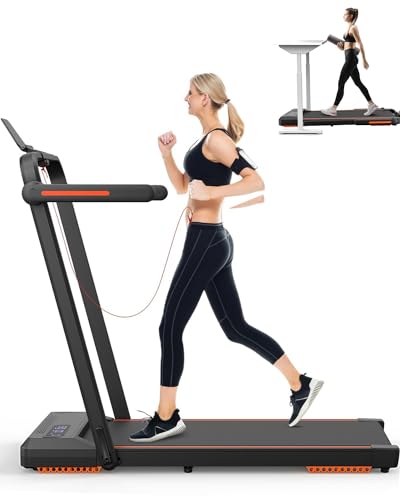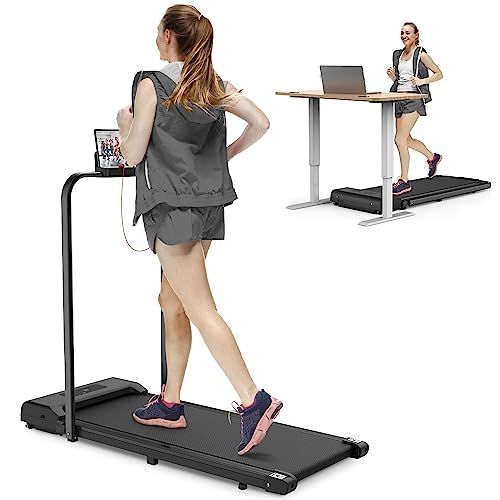
Buy Treadmill
FollowOverview
-
Founded Date May 1, 1931
-
Sectors Crafts
-
Posted Jobs 0
-
Viewed 41
-
Company size Agnes Consulting
Company Description
14 Smart Ways To Spend Your On Leftover Tread Mill Budget
Treadmills: A Comprehensive Guide to Understanding Their Functionality, Benefits, and Appropriate Selection
Introduction
Treadmills have actually ended up being a staple in modern fitness routines, both in homes and gyms worldwide. They offer a hassle-free and efficient way to preserve cardiovascular health, boost endurance, and help in weight management. This article checks out the various types of treadmills, their advantages, features to consider when buying, and some FAQs to guide users in making notified decisions.
Types of Treadmills
When it pertains to picking a treadmill, it is vital to comprehend the different types available in the market. Here are the primary classifications:

1. Handbook Treadmills
- Mechanism: These treadmills have a basic design and depend on the user’s efforts to move the belt.
- Pros: More budget-friendly, quieter operation, no electricity needed.
- Cons: Limited features, might not offer the very same series of workout intensity.
2. Motorized Treadmills
- System: Powered by a motor that drives the belt, permitting users to walk or run at a set rate.
- Pros: Greater range of speeds and inclines, equipped with numerous features such as heart rate monitors and exercise programs.
- Cons: More costly and might require more maintenance.
3. Folding Treadmills
- Mechanism: Designed for those with limited space, these treadmills can be folded for easy storage.
- Pros: Space-saving, often motorized, flexible functions.
- Cons: May be less long lasting than non-folding models.
4. Industrial Treadmills
- System: High-quality machines created for usage in health clubs and gym.
- Pros: Built to withstand heavy use, advanced features, frequently consist of warranties.
- Cons: Pricey and not perfect for home use due to size.
5. Curved Treadmills
- System: A special design that permits users to move the belt using their own energy.
- Pros: Offers a more natural running experience, promotes better running kind.
- Cons: More expensive and can be noisier.
| Treadmill Type | Pros | Cons |
|---|---|---|
| Manual | Economical, no electrical energy needed | Limited functions |
| Motorized | Variety of speeds, advanced functions | Upkeep needed |
| Folding | Space-saving, often motorized | May do not have resilience |
| Business | Constructed to last, professional-grade functions | Expensive |
| Curved | Natural running experience, promotes excellent form | Greater cost |
Advantages of Using Treadmills
Treadmills offer numerous benefits that can add to one’s overall fitness goals. A few of these advantages consist of:
- Convenient Workouts: Treadmills allow users to exercise inside your home regardless of weather conditions.
- Cardiovascular Health: Regular use can improve heart health by increasing endurance and promoting healthy circulation.
- Weight Management: Effective for burning calories, which aids in weight-loss and management.
- Adjustable Workouts: Users can control speed, slope, and period to produce customized workout experiences.
- Safety: Treadmills provide a predictable surface, decreasing the danger of falls compared to outdoor running.
- Multifunctional: Many treadmills featured functions like heart rate monitors, workout programs, and even home entertainment systems.
Selecting the Right Treadmill
When choosing a treadmill, prospective purchasers must think about several essential elements:

Features to Consider:
- Motor Power: Typically determined in horsepower (HP), a motor strength of at least 2.5 HP is recommended for severe runners.
- Belt Size: A longer and wider belt accommodates numerous stride lengths, providing convenience during exercises.
- Incline Settings: Adjustable slope functions imitate outdoor hill running and can increase exercise intensity.
- Weight Capacity: Ensure the treadmill can support the user’s weight for safety and durability.
- Console Features: Look for easy to use dashboards, exercise programs, and Bluetooth compatibility for streaming music or other functions.
Budget Considerations
- Under ₤ 500: Entry-level manual treadmills suitable for casual walkers.
- ₤ 500 – ₤ 1,500: Mid-range motorized treadmills that use more functions and better durability.
- ₤ 1,500 – ₤ 3,000: High-end models with advanced technology, larger motors, and longer guarantees.
- Over ₤ 3,000: Commercial-grade treadmills ideal for regular use in health clubs or training centers.
Regularly Asked Questions (FAQs)
1. How often should I utilize a treadmill?
It is advised to use a treadmill a minimum of three to 5 times a week, integrating numerous strength levels for best outcomes.
2. Can I drop weight by using a treadmill?
Yes, constant usage of a treadmill can add to weight-loss, especially when combined with a well balanced diet and strength training.
3. What is the very best speed to stroll on a treadmill for newbies?
A speed of 3 to 4 miles per hour is a suitable variety for beginners. It’s necessary to start sluggish and gradually increase pace as comfort and stamina improve.
4. Do I require to use a treadmill if I currently run outdoors?
Utilizing a treadmill home can provide fringe benefits, such as regulated environments and differed workouts (incline, periods) that are not constantly possible outdoors.
5. How do I keep my treadmill?
Routine maintenance includes lubing the belt, cleaning the deck and console, and checking the motor for optimal efficiency.
Treadmills are essential tools for those seeking to boost their physical fitness levels in a controlled and practical way. With various types offered, understanding their features and benefits is essential for making an informed purchase. By thinking about personal exercise requirements, space accessibility, and budget restraints, people can find the most appropriate treadmill that fits their lifestyle. Incorporating treadmill workouts into a well balanced physical fitness routine can cause enhanced health outcomes and a satisfying exercise experience.
